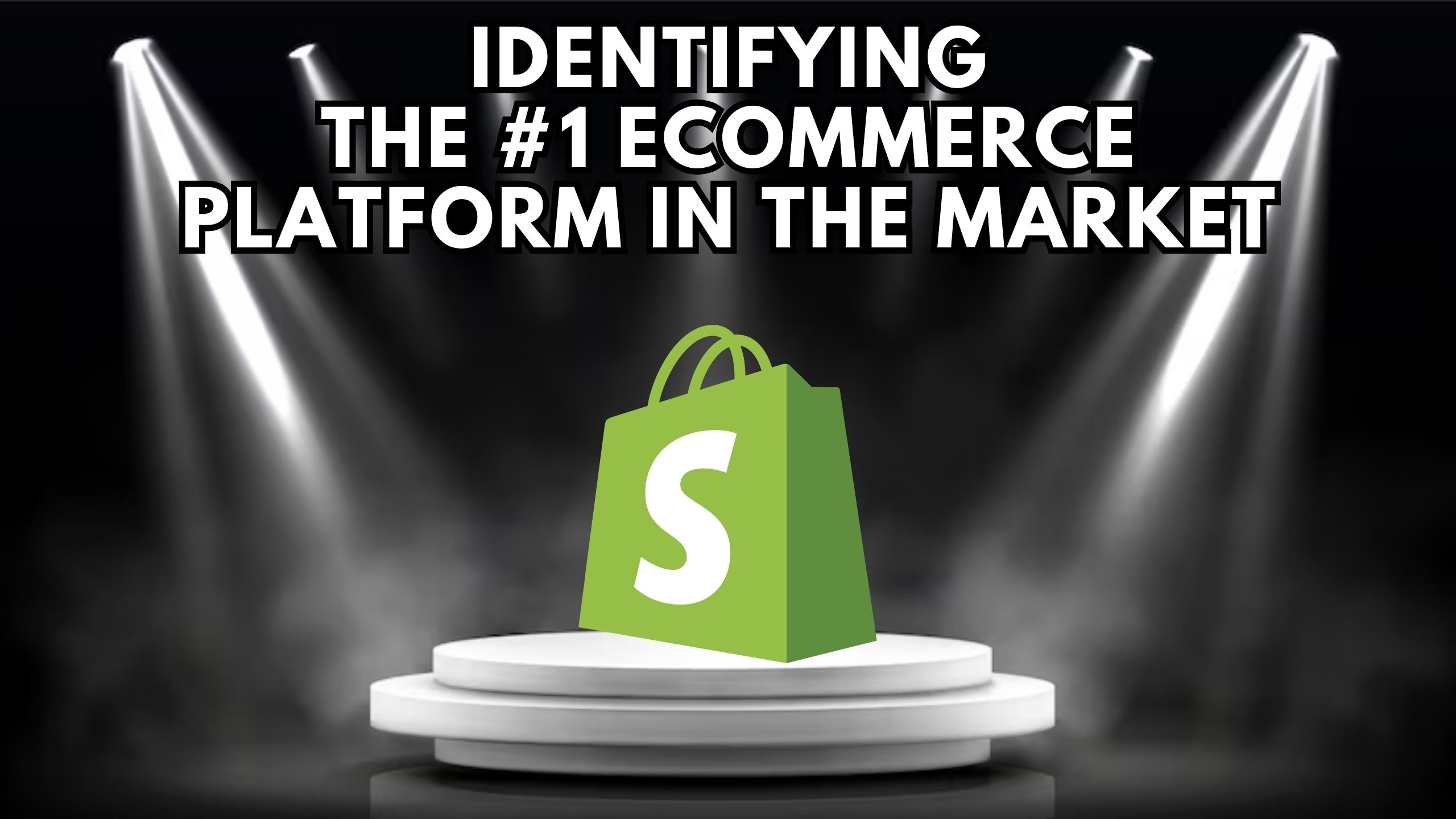Identifying the #1 eCommerce Platform in the Market


Identifying the #1 eCommerce Platform in the Market
In the dynamic landscape of e-commerce, choosing the right platform is crucial for success. Businesses often grapple with the question: What is the #1 ecommerce platform? In this detailed exploration, we will navigate through the key contenders, shedding light on their unique features and advantages.
1. Shopify: Empowering E-Commerce Giants
Shopify stands out as a powerhouse in the e-commerce realm. Renowned for its user-friendly interface and robust features, it caters to businesses of all sizes. With a wide range of customizable templates, seamless integration of third-party apps, and dedicated e-commerce tools, Shopify empowers users to create and manage their online stores with unmatched ease.
2. WooCommerce: The WordPress E-Commerce Solution
WooCommerce, a WordPress plugin, emerges as a formidable contender. Known for its flexibility and scalability, WooCommerce seamlessly integrates with WordPress websites, offering a comprehensive e-commerce solution. Its open-source nature allows for extensive customization, making it an ideal choice for businesses seeking a tailor-made online store.
3. Magento: Tailored for Enterprise-Level Success
Magento positions itself as the go-to solution for enterprise-level e-commerce. Recognized for its scalability and advanced features, Magento provides a robust platform for large-scale businesses. With powerful built-in tools for marketing, analytics, and customer management, Magento is engineered to fuel growth in the competitive e-commerce landscape.
4. BigCommerce: Simplifying E-Commerce Operations
BigCommerce distinguishes itself with its all-in-one approach to e-commerce. From hosting and security to built-in marketing tools, BigCommerce streamlines the entire process. Its scalability and user-friendly interface make it suitable for businesses at various stages of growth, providing a hassle-free experience for both merchants and customers.
5. Wix eCommerce: Versatility in Website Building
Wix eCommerce combines the versatility of website building with robust e-commerce capabilities. Known for its drag-and-drop editor and a plethora of templates, Wix caters to users seeking a visually appealing online presence. Wix’s seamless integration of e-commerce features makes it a compelling choice for businesses looking to marry aesthetics with functionality.
Conclusion
Identifying the #1 ecommerce platform depends on the unique needs and goals of your business. Whether you prioritize user-friendliness, customization, scalability, or a combination of factors, each platform offers distinct advantages. Carefully assess your requirements to make an informed decision that aligns with your e-commerce ambitions.
Unlock Exclusive SaaS Deals and Revolutionize Your Business with Subscribed.fyi
Subscribed.fyi is your ultimate destination for managing your SaaS stack. Sign up for free today to access exclusive member-only deals, saving over $100,000 annually on 100+ SaaS tools. Simplify your subscription management, compare tools, and make informed decisions effortlessly.
Sign up for free today at Subscribed.fyi








